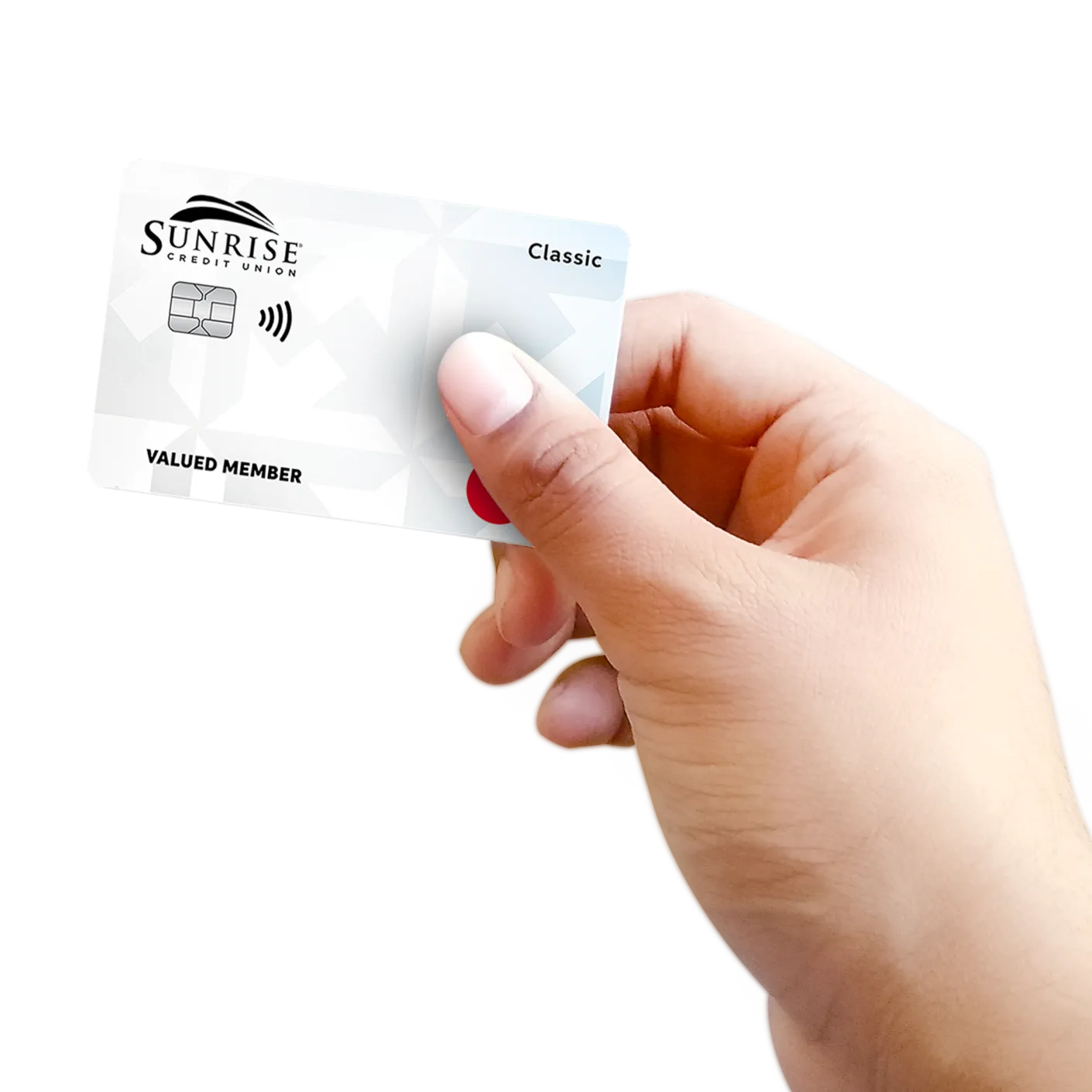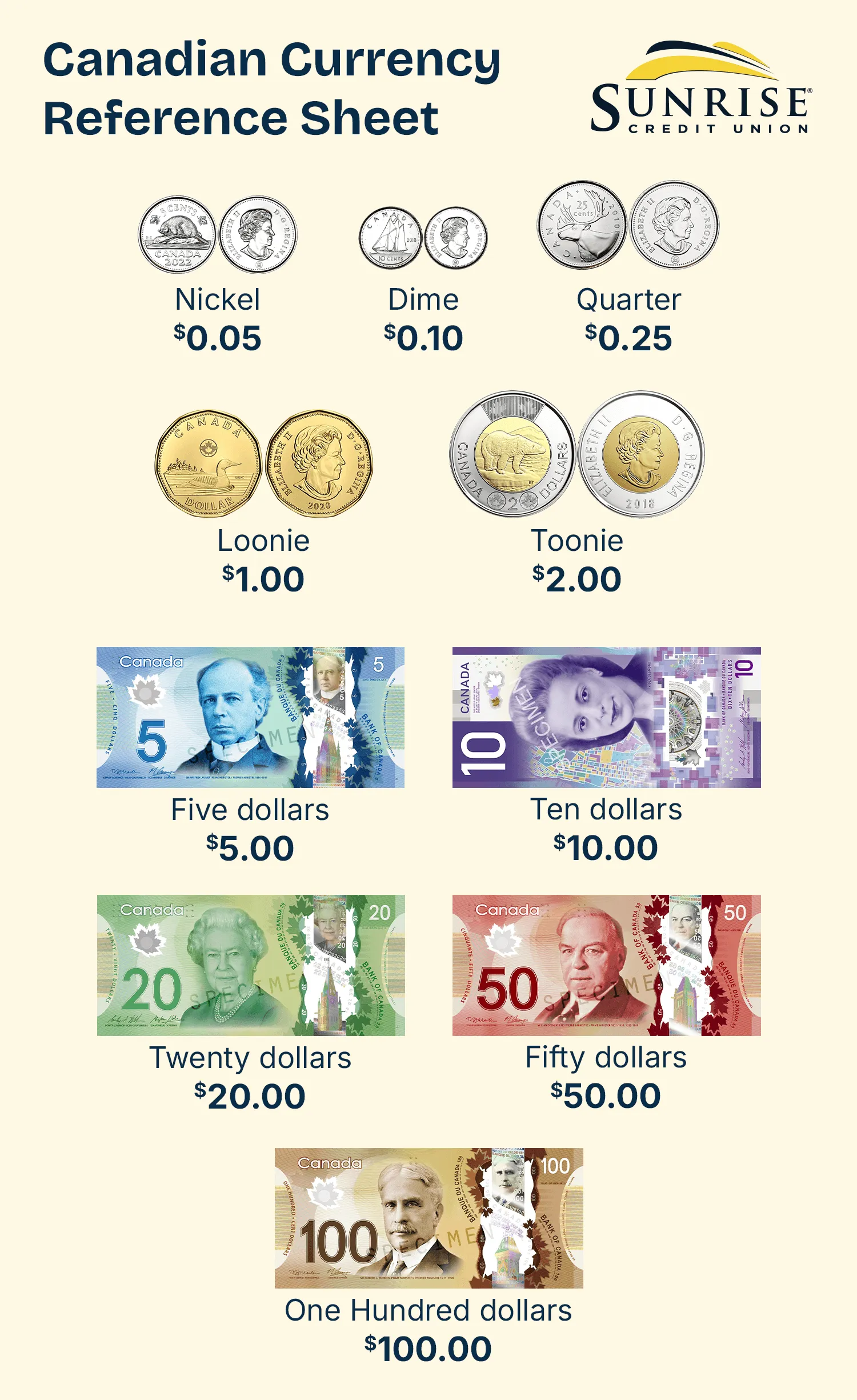New to Canada Package
New to Canada? Sunrise Credit Union is here to make your transition a little easier with these great features:
- No Fees on Select Chequing Accounts (for First 6 Months)
- $250 Welcome Bonus
- Free Mortgage or Consumer Loan Application Fee
- Free Member Share


What is Included?
- $250 welcome bonus (paid after six months of membership)
- Free $5 member share
- No fees on a Personal Chequing Account for six months (Electronic, Lifestart, Premium, Platinum Plus, Golden or Prudent Student)
- Free application fee for one Consumer Loan and one Residential Mortgage (fee refunded within the first 24 months of opening a membership at Sunrise Credit Union)
- $10 discount on a Safety Deposit Box annually
- Free Cheques printed (on the the first 24 personal cheques printed in-branch within the first six months of opening a chequing account)

How to Qualify?
To qualify for the welcome bonus:
- When opening the account, you must provide an email address and mobile phone number.
- You must have ongoing monthly direct deposits totalling $500 or more within six months
- Complete one of these transactions within six months
- Two ongoing pre-authorized debits
- Two online bill payments of $50 or more
Banking in Canada
The first step you should take regarding your funds is to deposit them with the right financial institution - Sunrise Credit Union will help you keep your funds safe and secure.
As a newcomer in Canada, one of the first things to do is to open a bank account. Here, we will discuss the importance of having a bank account when you arrive in Canada, the requirements and documents for account opening, types of bank account, the process of applying for bank cards and their usefulness, credit reports and scores and how it impacts you.


.webp)
The Importance of Having an Account
Setting up a bank account is crucial for:
- Managing finances
- Depositing and withdrawing funds
- Carrying out financial transactions locally and internationally either online or in-person
- Accessing Automated Teller Machines (ATMs)
- Receiving income
- Applying for bank loans
- Issuing cheques
- Using debit and credit cards as payment tools
- Seeking financial advice from professional advisors
Requirements and Documentation
To qualify for the New to Canada package, you must be 18 years of age or older at time of account opening and must be a Permanent Resident or Temporary Resident of Canada for three years or less and provide proof of your status through your:
- Permanent Resident Card
- Confirmation of permanent residence (e.g., IMM Form 5292)
- Temporary Permit (e.g., IMM Form 1208, 1102
And provide one of the following pieces of personal identification:
- Valid passport
- Canadian driver’s license
- Government of Canada identification card
Note: Other identification documents may be acceptable or required. Please visit a Sunrise Credit Union branch for details.


Types ofAccounts
There are many types of accounts that can be opened; however, the two main common types of bank accounts are Chequing and Savings or Investment accounts. Chequing account is the regular account used for daily transactions and the savings account is for investment purposes.
.svg)
Chequing Accounts
Sunrise Credit Union offers a variety of chequing accounts to meet member needs. Some of these accounts include the Student Chequing Account, Lifestart Account, Premium Account, Platinum Plus Account, Golden Account, and Personal Electronic Account.

Sunrise Plan 24 Savings Account
This account is ideal if you’re looking for one to deposit money into and enjoy unlimited in-branch withdrawals during the month. Interest is based on daily closing balances and paid monthly to the account. It is perfect for the member who desires the flexibility of unlimited deposits and in-branch withdrawals each month.
Click the Links Below to Explore Other Account Types:
.svg)
Personal Accounts
Lorem ipsum dolor sit amet consectetur. Nunc mattis mauris id convallis.

Investment Accounts
Lorem ipsum dolor sit amet consectetur. Nunc mattis mauris id convallis.
.svg)
Agribusiness Accounts
Lorem ipsum dolor sit amet consectetur. Nunc mattis mauris id convallis.
.svg)
Commercial Accounts
Lorem ipsum dolor sit amet consectetur. Nunc mattis mauris id convallis.
Sending and Receiving Money

International Transfer
Sunrise Credit Union offers an International Transfer service, enabling members to transfer money internationally through online banking. International Transfers can accomodate several of your needs, including:
- Sending money to friends or family who live overseas
- Supporting a family member who is travelling overseas
- Paying for a wedding abroad
- Overseas medical expenses
- Paying for accomodation/luxury holidays overseas
.svg)
Wires
Send or receive a large sum of money quickly and securely, almost anywhere and in any currency, via wire transfer.
Applying for Bank Cards
There are many types of accounts that can be opened; however, the two main common types of bank accounts are Chequing and Savings or Investment accounts. Chequing account is the regular account used for daily transactions and the savings account is for investment purposes.
Debit Cards
Debit cards allow cardholders to make purchases and withdraw cash directly from their linked bank account, such as a chequing account. Cardholders can also withdraw money from Automated Teller Machines (ATMs) anywhere. While there could be a fee when you use your card at another bank’s ATM, credit unions across Canada are linked to offer free ATM transactions nationwide.
Debit cards require activating a Personal Identification Number (PIN) before you can use them. In addition, most debit cards in Canada have contactless payment technology, which allows cardholders to tap their card or mobile device on a compatible card reader to complete their transactions without punching in their PIN.
Debit cards have daily transaction and withdrawal limits depending on the account type and the issuer.
.webp)
.webp)
Credit Cards
Credit cards allow cardholders to pay bills, purchase goods, or pay for services instore or online using credit (borrowed funds). The cards can serve as a financial safety net during emergencies when immediate funds are needed. For online purchases, the card number, expiration date, and the CVC at the back of the card need to be entered.
A credit card is an amazing tool that can help you build a credit history when used to pay for goods and services. However, it is important to use credit cards responsibly by making payments on time and maintaining a low credit utilization ratio to build your credit score.
Many credit cards feature strong financial protection, shielding the cardholder from liability for any suspected fraudulent or illegal transactions made without authorization.
Many credit cards offer rewards programs such as cashback, travel points for every dollar spent and provide rewards like travel insurance, purchase protection and extended warranties.

Start Building Your Canadian Credit History
Canada operates on a credit-based economy and, as a new immigrant, understanding this system empowers you to navigate your financial journey with confidence.
As a new immigrant, you have no credit history in Canada. If you qualify, you should easily be able to apply for a credit card. Having a credit card means that the issuer has given you a certain amount of funds, also known as a credit limit, to use and pay back in full immediately or pay the minimum amount shown on the statement every month at a given interest rate. Using your credit card and timely repayment of funds borrowed gives you a credit score. Your credit score shows you have been building credit while using the credit card responsibly. The credit score determines the credit rating.
A higher credit score rating opens doors to opportunities, demonstrating your creditworthiness to lenders. This can lead to securing loans for a house, a car, or even a business, paving the way for your financial growth in Canada.
For more information on credit cards, and building good credit, schedule a meeting with our expert advisors.

.svg)
Credit Report
A credit report is a detailed summary of an individual’s credit history compiled by agencies called credit bureaus. The report aims to give creditors and lenders information about the borrower’s creditworthiness when applying for a credit or loan. The report contains personal information, credit accounts, payment history, credit inquiries, public records, and credit scores.
.svg)
Credit Score
A credit score indicates how creditworthy a person is when qualifying for credit cards, car loans, apartment leases, and mortgages. It is used to determine interest rates for loans. The score often ranges between 300 and 900. A credit score is computed using a variety of variables, such as payment history, credit utilization ratio, types of credit, length of credit history, and credit inquiries. The score serves as a reference for lenders to determine whether or not to give credit or a loan to a borrower.
- A high credit score not only opens doors to credit products like loans and credit cards, but it also paves the way for significant savings. A borrower with a higher credit score usually qualifies for lower interest rates on loans and credit cards, leading to substantial savings on interest payments over time.
- In Canada, individuals need to monitor their credit scores regularly and take steps to maintain or improve them if necessary because they play a significant role in their financial lives.
- When securing a rental property, landlords and property managers often check credit scores, which can influence their decision to accept or deny the renter’s request. Someone with a high credit score is more likely to secure the rental property than someone with a poor credit score.
- Some Canadian companies conduct credit checks throughout the recruiting process, particularly for roles involving financial responsibility. In this case, a low credit score may impact employment opportunities.
- One of the most effective ways to build your credit score is by using your credit card responsibly. This means making payments on time and spending only what you can afford. By following these simple guidelines, you can steadily improve your credit score and open up more financial opportunities.
The Canadian dollar is the official currency of Canada, and the symbol of the Canadian dollar is $ but can be distinguished from other currency symbols by using CAN$ or C$. It is important to be able to familiarize yourself with the currency and denominations in coins and paper form when you arrive in Canada. We have the following denominations and their nicknames:
- A nickel is five cents.
- A dime is ten cents.
- A quarter is twenty-five cents.
- A loonie is one dollar.
- A toonie is two dollars.
The other bank notes that we have are issued in $5, $10, $20, $50, and $100 bills and are made of polymer.

Studying Abroad?
Sunrise Credit Union's Prudent Student account is free for students aged 6 - 25 who are enrolled in school or post-secondary education.
.svg)

.svg)